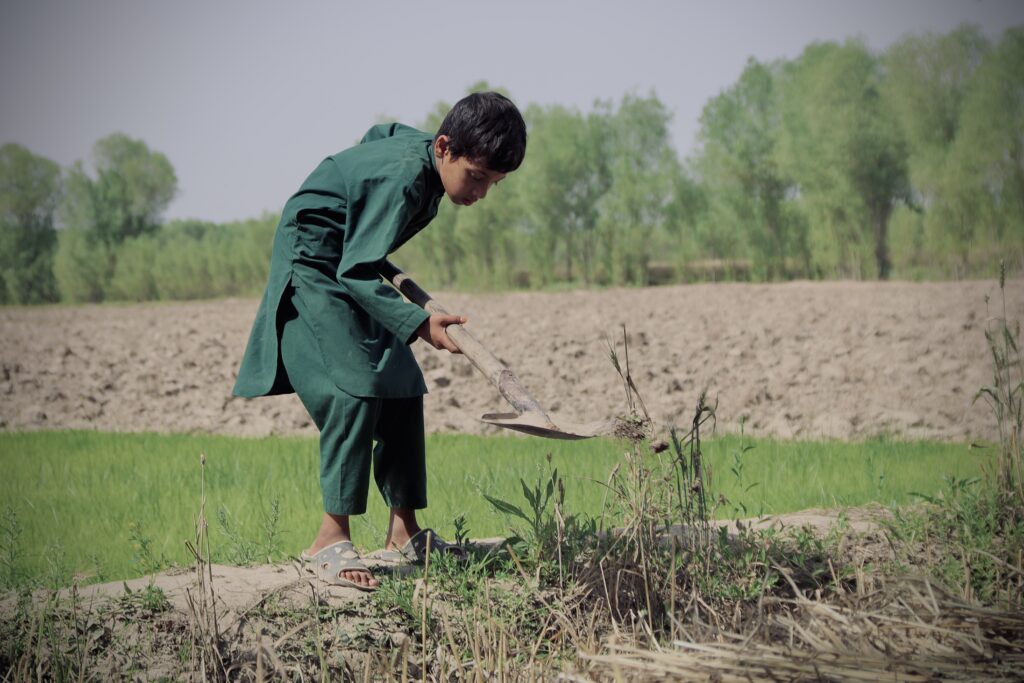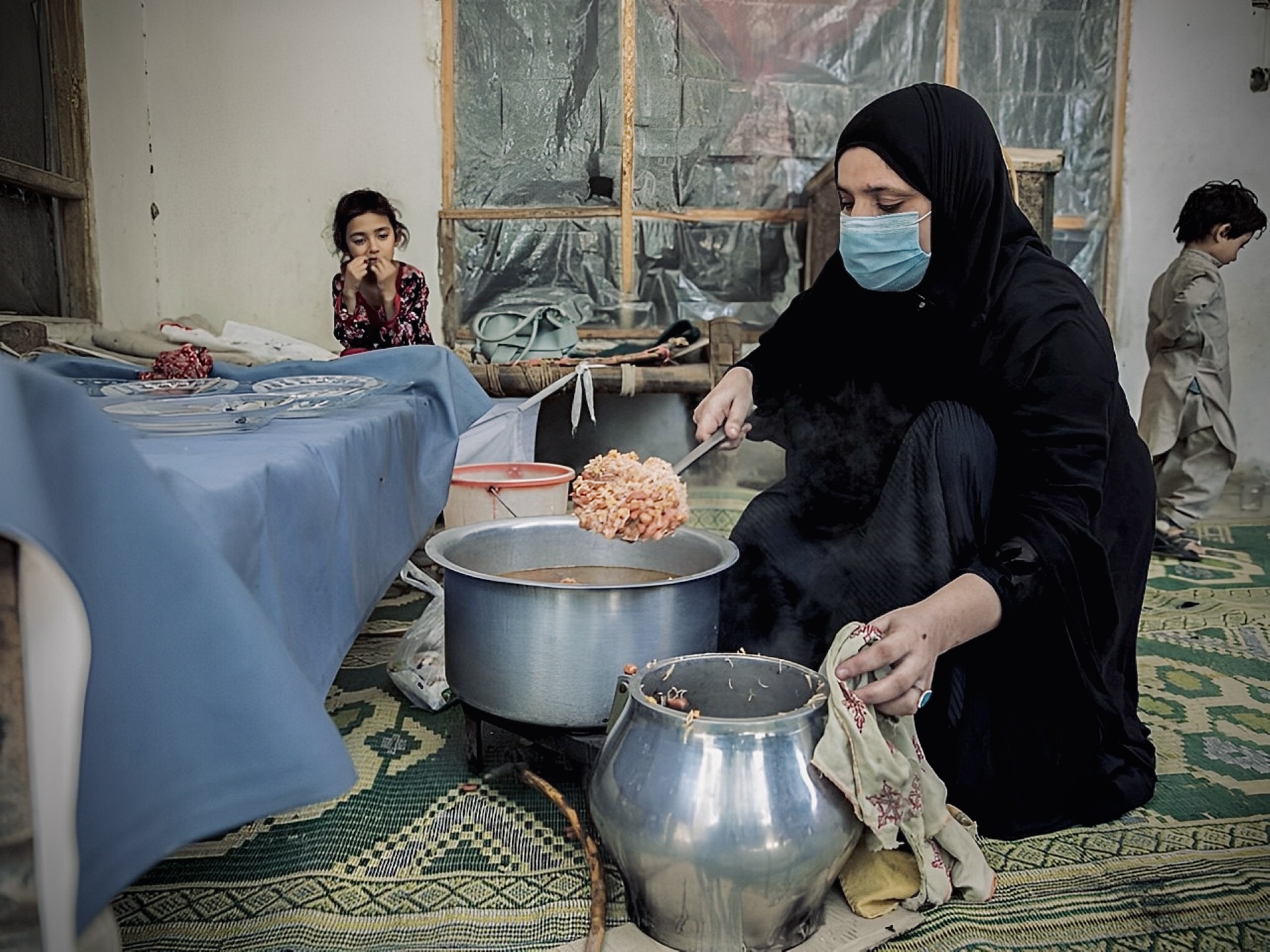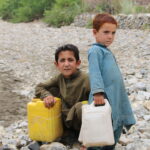For World Food Day, October 16, 2024, the Afghan Times and IUF Asia/Pacific released a report “Women and Food Insecurity in Afghanistan” highlighting the country’s worsening food crisis, deteriorating health conditions, and rising malnutrition, exacerbated by the Taliban’s systematic repression on women and girls’ rights.
Afghanistan is grappling with a severe food insecurity crisis, exacerbated by the Taliban’s restrictive policies on women and poor governance. Experts and local citizens warn that the country, already facing economic collapse, droughts, and ongoing conflict, is on the brink of widespread famine.
Since taking power in 2021, the Taliban have imposed strict limitations on women’s participation in the workforce, including a ban on female employees in non-governmental organizations (NGOs). This move has disrupted critical food distribution networks, particularly in rural areas where female workers were essential in delivering aid.
“Women were key to reaching vulnerable families,” said an international aid worker who wished to remain anonymous for security reasons. “Now, many of those families are being left behind, and we’re seeing alarming rises in malnutrition.”
The United Nations estimates that six million Afghans are currently on the brink of starvation, with 28 million requiring urgent humanitarian assistance. The situation is further worsened by the Taliban’s neglect of Afghanistan’s agricultural sector. Once a central pillar of the economy, farming has been crippled by droughts, poor irrigation infrastructure, and a lack of governmental support.
“Our fields are drying up, and without enough water, the crops fail,” said a farmer from Kandahar Province. “Women used to help in the fields, but now, with them confined to the home, we don’t have enough hands to work. Our families are going hungry.”
Experts note that the Taliban’s inability—or unwillingness—to address the challenges in the agricultural sector is compounding the problem. Despite Afghanistan’s rich history of farming, the Taliban’s focus on controlling the population rather than addressing critical infrastructure needs has led to a sharp decline in staple crop production.
“The Taliban have done little to maintain irrigation systems, and their focus on opium poppy cultivation over staple crops like wheat is making the food crisis worse,” said an agricultural expert from Kabul University. “Without sustainable farming policies, the country is heading towards a deeper famine.”

In addition to agricultural collapse, market disruptions and rising food prices are pushing more Afghans into hunger. The Taliban’s policies, including restrictions on trade routes and a failure to combat rampant corruption, have severely impacted the availability of food in urban areas.
“Food prices are higher than ever, and the government isn’t doing anything to help,” said a shop owner in Kabul. “Corruption is everywhere. Even when aid comes in, we never see it. The Taliban are more interested in controlling us than feeding us.”
In many provinces, traders are finding it increasingly difficult to transport food, with roadblocks and conflict disrupting supply routes. The United Nations has highlighted that access to food markets is a significant issue in regions where roads are impassable due to fighting or poor infrastructure.
While international aid agencies continue to provide food assistance, the Taliban’s restrictions on foreign NGOs have forced many organizations to scale back operations. This has particularly impacted female-led households, many of which relied on aid as their primary source of food and income.
The Taliban’s policies, combined with systemic corruption and ongoing conflict, have left Afghanistan in a precarious situation. As the humanitarian crisis deepens, calls for immediate international intervention grow louder. However, without significant changes to Taliban governance and policy, experts warn that Afghanistan’s food crisis will only worsen.









